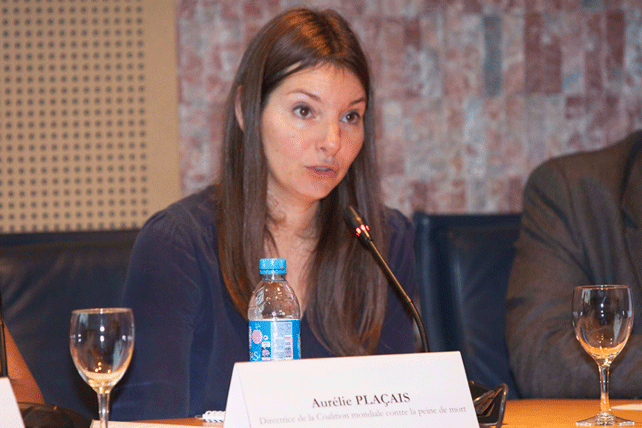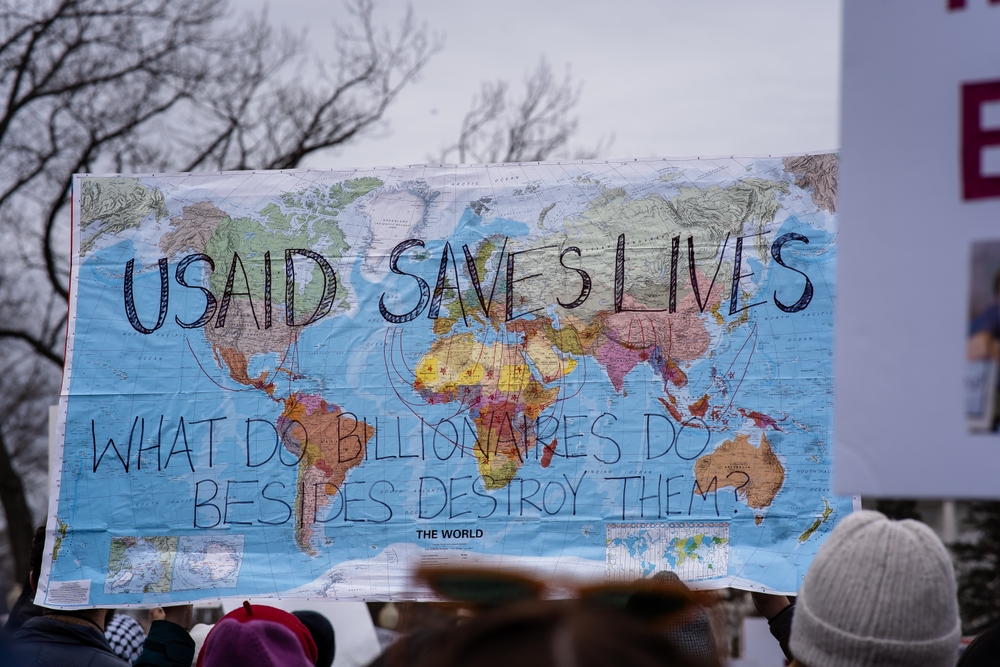Drug offences are punishable by death in at least 35 countries and territories worldwide, and that number may grow.
Over the past year, authorities in Bangladesh and Sri Lanka have reintroduced the death penalty as a possible punishment for drug offences, while the presidents of the Philippines and the US have expressed support for executing people involved in the drug trade. At the same time, Iran and Malaysia have made moves to reduce the use of the death penalty for non-violent drug offences.
TalkingDrugs spoke with Aurélie Plaçais, the director of the World Coalition Against the Death Penalty, to gain insight on how the use of the death penalty for drug offences is changing.
TalkingDrugs: What have been the most significant recent developments in the use of the death penalty for drug offences? Why have they taken place?
Aurélie Plaçais: In Iran, the government has ended the mandatory death penalty for drugs, and many people have had their death sentences commuted to lower sentences. Reform is also taking place in Malaysia, where the mandatory death sentence for drug offences is being removed. This is a global trend; many countries are realising that you cannot end drug trafficking by handing a death sentence to a “drug mule” – a person who has limited power or control in trafficking.
Another reason is the important work that the international death penalty abolition movement has been doing – especially the Harm Reduction International campaign, but also work by other organisations in the World Coalition Against the Death Penalty – putting pressure on the UN to ensure that policies being implemented don’t lead to executions.
Since HRI first published [their death penalty research] in 2007, there has been a real shift in the way that the UN is working on this issue.
TD: Malaysian authorities announced in 2018 that they would be abolishing the death penalty, but seem to have changed their mind. Why do you think this is?
AP: When they first made the announcement, we were very excited! But then we thought, “Is this really going to happen?” Now we see them backtracking, and saying it’s only the mandatory death penalty for drug offences that will be abolished. But for abolition to happen, you still need to have the support of a significant proportion of fellow citizens, and of people who have power, and in Malaysia – it was a bit too early.
For us, the fact that they put it on the agenda, that they were so strong about it, and that they even voted in favour of the UN General Assembly’s resolution on a death penalty moratorium [in 2018], show that they really tried. That is something. It’s something we can work from. We are not too disappointed, as we see progress anyway. We now know that it’s possible.
TD: How does gender inequality interplay with the use of the death penalty for drug offences?
AP: There is so much gender-specific discrimination when it comes to the death sentence. Women often get harsher sentences than men for being accomplices [in drug trafficking cases].
For example, in many cases where a woman is an accomplice to a crime – say, carrying drugs in her luggage – she will be caught with others, often a husband or male relative. The male relative will often put blame on the woman or give more information to the police, so the police will ask for lesser sentence for him. Meanwhile, the woman, not knowing how it works, will be accused for the whole crime and get a harsher sentence.
Most [women sentenced to death for drug crimes] are foreigners, most have suffered terrible abuse or sexual violence, and most of them have some kind of psychosocial disability. It’s a real accumulation of factors. If they were provided with mitigating circumstances and a good lawyer, they would never be sentenced to death. But because they are often from poor social backgrounds and can’t afford a lawyer, they are often sentenced to death.
TD: How can marginalised women affected by these policies be better empowered or protected?
AP: The first thing we are trying to do is build a movement.
Previously within the movement, we didn’t take specificities of death row into account. This includes basic things like the conditions on death row; prisons are often not made for women – necessities are not there. Another issue is access to justice; the overwhelming majority of people in prison are male, so are most judges and lawyers, so the specificities of women in the criminal justice system are not taken into account. It’s the job of the abolition movement to make that specificity more important.
When it comes to mitigating circumstances, it’s the job of lawyers presenting the cases to court to make sure they know the specific discrimination that women face – especially when they face multiple types of discrimination for being a woman, for having a psychosocial disability, or from having experienced terrible violence in childhood.
So firstly, we start with ourselves, because this is something we haven’t take into account enough. Secondly, we try to raise awareness with partners and work with influential communities – judges, policymakers, and the UN – in terms of setting guidelines and setting international standards.
TD: What is your favourite song?
AP: Chop Suey! – System of a Down


